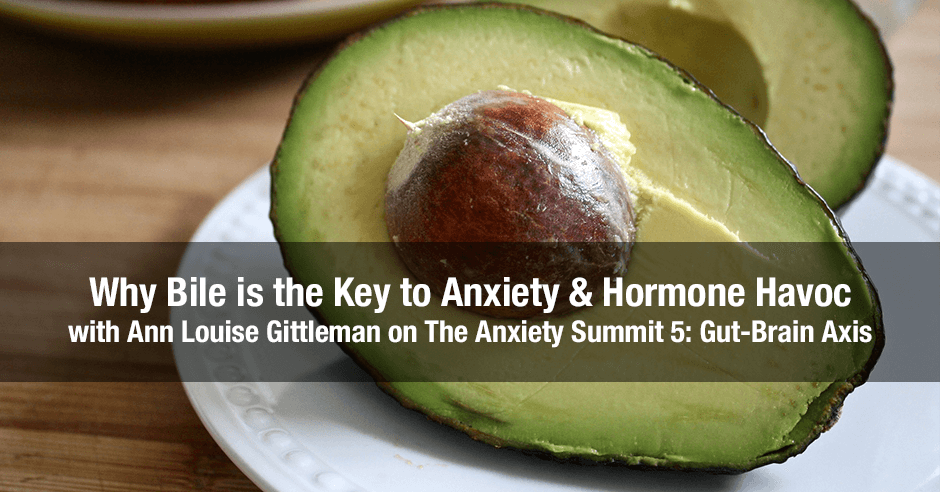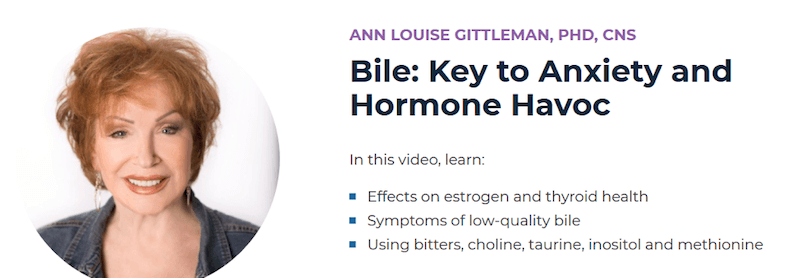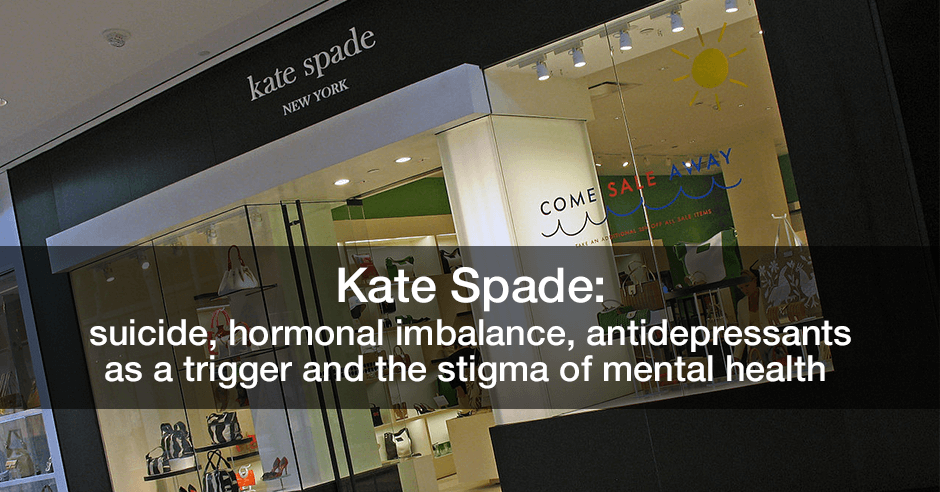
Ann Louise Gittleman is one my guest experts on The Anxiety Summit 5: Gut-Brain Axis and our topic is: Why Bile is the key to Anxiety & Hormone Havoc.
We had such a wonderful interview. She is sharp and funny, and really good with her short catchy phrases like this one: “Let’s make bile as important as probiotics!”
We start with the important role of bile in our bodies:
it emulsifies and digests fat, breaking it down into small particles so that your intestines can absorb them. It also helps escort toxins that your liver has removed out of the body.
We cover some of the many symptoms of low quality bile, such as queasiness, nausea, pale-colored stools, constipation and even motion-sickness.
Here is a snippet from our interview where Ann Louise shares about bitters, bile and the importance of digesting your fats:
I’m all for fat, I’ve written about it for years and have been on the frontlines of essential fatty acids. But if you’re not digesting fats you’re not using them and getting the benefits of your fat soluble vitamins A, D, E and K.
So bile is brilliant! Bring back the importance of bile and we know that bitter is better!
If you can remember all of that you’re on the right track to dealing with your anxiety and hormone havoc.
She covers the role of bile in PMS, estrogen imbalance and thyroid health; how it’s involved in the removal of toxins from the body:
Bile is the dumping ground for hormones like estrogen. It’s the dumping ground for heavy metals that create anxiety like mercury, as well as too much aluminum and lead. And it’s the dumping ground, also, for a bunch of chemicals. So you got to keep the bile flowing. You have to keep it decongested. You have to thin it out.
And simple tools to improve bile production (one of them being the addition of bitter greens to your diet).
You need to keep your bile nice and thinned out so it doesn’t clog up with extra estrogen that it’s not breaking down. And we do that with the bitters. The bitters are going to be the theme throughout. We do that with lemon and water in the morning. We do it with coffee, which is a bitter, believe it or not. And we do it with grapefruit and watercress, which are wonderfully bittered produce, high-end bittered produce. So bitter is very important for this.
We take a deep dive into key nutrients for bile production and quality: choline, taurine, inositol and methionine:
You want to make sure that you’re taking certain types of lipotropic nutrients. And the magic word here is lipotropic that will help to digest fats. And that would be your methionine, your choline, and your inositol.
Five hundred milligrams of choline, methionine, and inositol three times a day will help your body, particularly your liver, to break down hormones such as estrogen into a non-toxic metabolite like estriol, which is the non-toxic estrogen. And that’s very important. And those three nutrients, my dear friend, are very much deficient in the diet today.
We also go into zinc: copper imbalances and the role this plays in PMS, hormone balance and anxiety. We talk about avocado and almond flour – both are good sources of fats and both need good quality bile to be digested. You may be surprised to hear what Ann Louise shares about these two foods. You’re going to have to tune in to know what I’m talking about. If you’re surprised (or even if you’re not) please let me know in the comments.
You likely know Ann Louise Gittleman as a New York Times Bestselling author of over 30 books on diet, detox, the environment, and women’s health. Beloved by many, she is regarded as a nutritional visionary and health pioneer who has fearlessly stood on the front lines of holistic and integrative medicine.
One of my favorite books of hers is Before the Change: Taking Charge of Your Perimenopause (my Amazon link for the book). This book helped me so much when I was in the midst of my PMS, anxiety and panic attacks in my late 30s. It was this book that taught me about my need for zinc and vitamin B6 and evening primrose oil before I even knew that pyroluria existed. It was one of the many books I read at that time, starting me on my lifelong journey of reading about nutrition, studying to become a nutritionist and attending conferences and summits.
If you’d like to give feedback or ask a question, please post in the comments section below.


